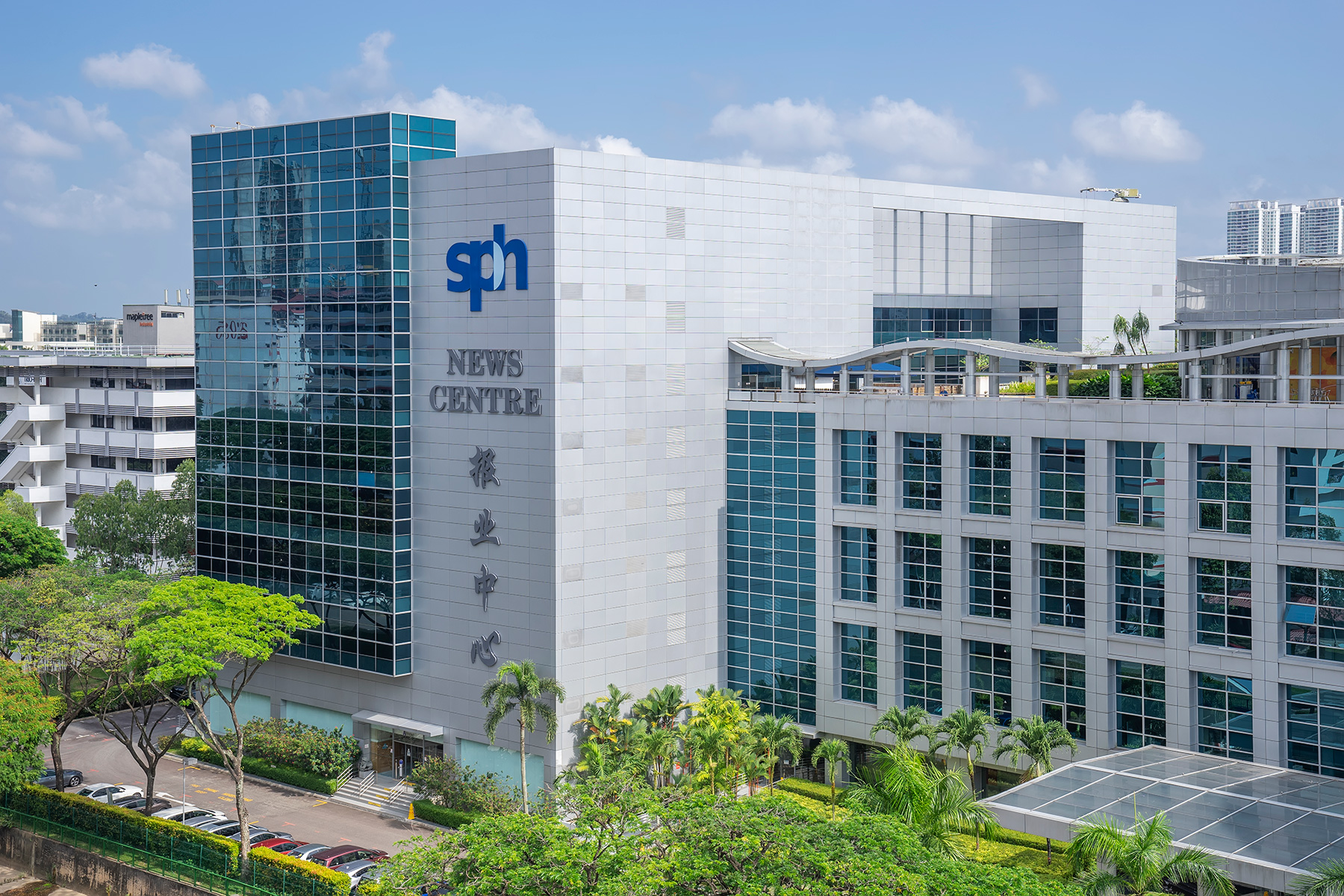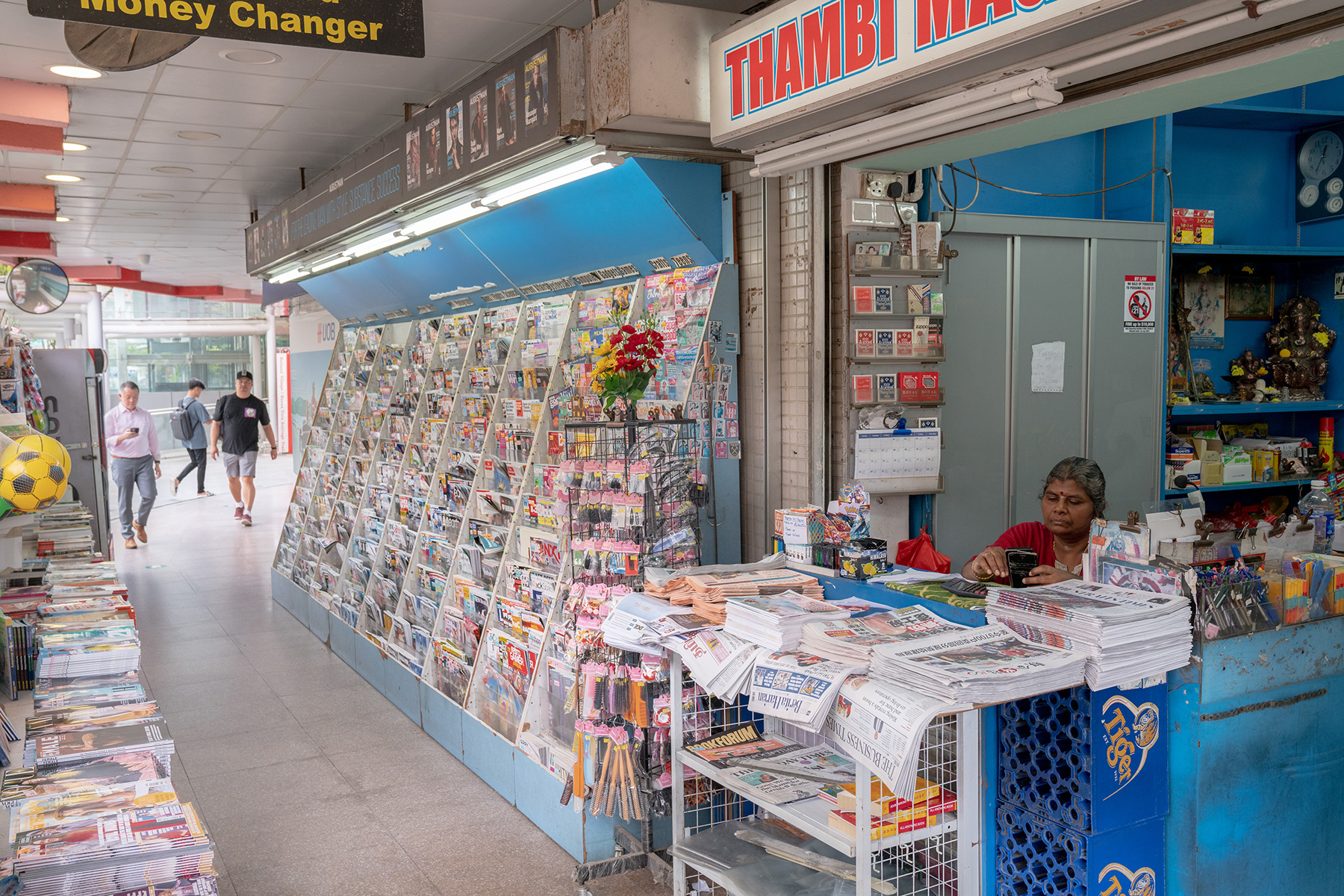Whether you get your news through print, TV, radio, or online, it’s a good idea to get to know your new country’s media landscape when moving abroad. This way, you can stay up-to-date with current affairs, politics, and much more.
You should also be aware of which news sources are available and how free and reliable they are. Read on to find out about Singapore’s established news outlets and digital platforms, what they offer, and their standards. Sections include:
- An overview of Singapore’s media
- Where can you access English-language news in Singapore?
- Newspapers and magazines in Singapore
- Singapore’s TV and radio news channels
- Singapore news websites
- Social media news sources in Singapore
- Singapore’s alternative news and citizen journalism landscape
- News sources to avoid in Singapore
- Tips on getting reliable news in Singapore
- Useful resources
Ground News
Get every side of the story with Ground News, the biggest source for breaking news around the world. This news aggregator lets you compare reporting on the same stories. Use data-driven media bias ratings to uncover political leanings and get the full picture. Stay informed on stories that matter with Ground News.
An overview of Singapore’s media
Understandably, for a city-state of its geographic and population size, Singapore has a smaller range of news media outlets than many other countries. However, there are several print, broadcast, and online providers distributing content in English, Chinese, and other languages.
Two media companies dominate Singapore’s news output. One is the state-owned Mediacorp, responsible for most TV and radio news broadcasting in Singapore. The other is SPH Media, a private company with a virtual monopoly in the print newspaper market.

Singapore’s news industry is regulated by the Ministry of Communications and Information, which issues licenses for establishing news bureaus and press accreditations. It also generally engages with members of the news media. However, the Infocomm Media Development Authority (IMDA) also has a role to play with digital media and has the power to issue licenses and order corrections against untrue or inaccurate content.
In terms of news consumption, the 2021 Reuters Institute report on Singapore found that:
- 84% of Singaporeans regularly get news online
- 58% periodically get their information from social media
- 44% watch TV news frequently
- 22% often read newspapers in print
- 45% trust news sources overall, with mainstream outlets being the most trusted
Singapore ranks 129th out of 180 nations on the 2023 World Press Freedom Index published by Reporters Without Borders. The report states that press freedom is “almost non-existent” in the country due to tight government control. Popular news sources typically publish pro-government content, and there is evidence of IMDA censorship of those critical of authorities.
Where can you access English-language news in Singapore?
English is one of the four main languages of Singapore. This means that there is no shortage of news coverage in this language. All major newspapers, TV stations, and news websites are available in English.
You can buy newspapers, including many popular overseas publications, from newsstands on high streets across Singapore. If you are keen on a particular paper, you can also take out a subscription and have it delivered to your address.
Meanwhile, you can also set up your TV to receive global channels such as BBC World News.
Newspapers and magazines in Singapore
National Singaporean newspapers
National daily Singaporean newspapers include titles in all four of the country’s official languages – English, Chinese, Malay, and Tamil. SPH Media owns most of the main publications and limits its criticism of the government. Here is a selection of the most popular titles:
- The Straits Times – English-language broadsheet owned by SPH Media and Singapore’s most widely-read newspaper, although it was found to have inflated its daily circulation figures by 10–12% in 2022. Its content is largely pro-government, but it is rated as fairly reliable.
- The New Paper (TNP) – another English-language title owned by SPH Media, this became a freesheet tabloid in 2016 and went fully digital in 2021. It has a trust score of 59%, the fourth-highest among Singaporean newspapers.
- TODAY – Mediacorp’s rival to The Straits Times and TNP, this freesheet went fully digital in 2017. It has an online reach of 20% and a trust rating of 65% (2023).
- Lianhe Zaobao – SPH Media’s main Chinese-language publication, this daily broadsheet is read by 8% of Singaporeans, making it the fourth most popular paper. It’s regarded as pro-government and pro-China, although it has a trust rating of 65%.
- Berita Harian – the only Malay-language print newspaper in Singapore, SPH owns this broadsheet. It is read by 4% of Singaporeans.
- Tamil Murasu – SPH Media’s Tamil-language broadsheet newspaper
Weekly or periodical newspapers and magazines
Singapore’s size means it has little in the way of regional or local press. However, there are a few weekly, weekend-only, and periodical news outlets for those who want to digest the week’s events over the breakfast table at the weekend.

Popular titles include:
- Pravasi Express – fortnightly bilingual paper published in Malayalam and English with sections on entertainment, sports, arts, culture, and news
- Tabla! – free weekly English-language sister publication to Tamil Murasu
- Thumbs Up – weekly Chinese-language digital publication aimed at school students, part of Lianhe Zaobao‘s schools program
- Weekender – free weekend English-language paper delivered to homes, containing news and information on what to see and do
Specialist newspapers
You can find a variety of specialist newspapers and magazines at Singapore’s newsagents and newsstands, covering everything from business news to sports. These could be daily, weekly, monthly, or even quarterly. Some of the most well-known English-language titles are:
- AugustMan – men’s lifestyle magazine
- The Business Times – daily financial news
- Harper’s BAZAAR Singapore – lifestyle magazine
- Her World – women’s lifestyle magazine
- Singapore Women’s Weekly – digital lifestyle media site aimed at working mothers
- Fashion magazines, such as Tatler Asia and Vogue Singapore
- Time Out Singapore – lifestyle news and things to do
Singapore’s TV and radio news channels
Singapore has around 200 TV channels and 18 radio stations, including several dedicated to news. Whereas SPH Media is the major player for the printed press in Singapore, the government-owned Mediacorp dominates the country’s broadcast media, running six terrestrial TV channels and 12 radio channels. SPH Media also produces some broadcast media content.
As with print media, all news broadcasters in Singapore cover the whole country. Once you’ve set up your telecommunications, you’ll be able to receive TV, including the country’s principal news networks.
Singaporean TV news
Mediacorp’s flagship Channel News Asia (CNA) is Singapore’s leading news outlet. This is the most popular source of news in the country, beating The Straits Times in both offline and online user figures. It is also the most trusted news brand in Singapore, with a rating of 79%. Although under government ownership, the station scores highly for objectivity and factual accuracy.
Other stations popular for news in Singapore include:
- Channel 5 – Mediacorp-owned English-language TV channel providing entertainment and news. It has a weekly reach of 1.3 million people.
- Channel 8 – Mediacorp’s main Chinese-language (Mandarin) TV channel, similar in content to Channel 5. Around 1.9 million watch it weekly.
- CNBC Asia – English-language Asian arm of NBC based in Singapore. The channel specializes in business news.
- Channel U – Mediacorp’s other main Chinese-language channel with a focus on youth and teen programming
- Suria – Malay-language network owned by Mediacorp
Singaporean radio news
Mediacorp also has a monopoly in radio, operating around a dozen stations in all four national languages. Main news outlets include:
- CNA938 – CNA’s radio output broadcasting news and topical discussion
- AXR Singapore – English-language expat-focused station covering news, sport, and music
- One FM – English-language music station owned by SPH Media, has regular news bulletins
- MONEY FM – English-language business and personal finance radio station
- Capital 958 – Chinese-language station owned by Mediacorp
- Warna 942 – Mediacorp’s Malay-language radio service
Singapore news websites
The most popular way to access news in Singapore is online. According to Reuters Institute analysis from 2023, 84% of Singaporeans now regularly get news from the internet.

All of Singapore’s major print and broadcast news outlets have an online presence. According to the Reuters report, the platforms with the highest usage in 2023 were:
- Channel News Asia (48%)
- Mothership – online-only news website (46%)
- The Straits Times Online (42%)
- Yahoo! News – Singapore division of global news provider (23%)
- TODAY online (21%)
- STOMP – citizen journalism web portal division of The Straits Times (16%)
- CNN – US-based global news network (13%)
- Asia One – Singaporean news and lifestyle website (19%)
- BBC News online (13%)
- The Online Citizen – citizen journalism website operating in Singapore and Taiwan (11%). The site went offline in October 2021, as the government suspended its license when it did not declare its funding sources. Back online since September 2022, it has a relatively low level of trust (38%).
Social media news sources in Singapore
Social media has become one of the most common ways of consuming and spreading news in recent years. Many smartphone users now have apps on their smart devices linking them to the biggest social media services. Naturally, Singapore’s main news providers now have a presence on the key platforms where they can disseminate articles.
According to the 2023 Reuters Institute report on Singapore, 58% of the population now regularly gets news via social media. This is higher than for both broadcast and print media. Just over one-third of people (34%) share news via social media platforms in the country.
The most popular social media platforms for news in Singapore are (2023):
- WhatsApp (38%)
- Facebook (36%)
- YouTube (30%)
- Instagram (19%)
- Telegram (18%)
Social media tends to be less tightly regulated than traditional media forms, making it more susceptible to ‘fake news.’ However, in countries such as Singapore, where the government has a tight grip on mainstream outlets, it can also play an important role in disseminating information that may be subject to censorship elsewhere.
The Singaporean government passed the Protection of Online Falsehoods and Manipulation Act (POFMA) in 2019. Ostensibly targeting the proliferation of fake news, it has been used to clamp down on social media content critical of the authorities.
Singapore’s alternative news and citizen journalism landscape
Singapore doesn’t have a large culture of alternative or activist news. This is likely related to the government’s close monitoring of the media and swift responses to criticism.
Singapore scores fairly poorly in terms of both overall press freedom and citizen freedom on the internet. If you publish content critical of the authorities, you could be the target of lawsuits. Although restrictions on journalists’ rights usually don’t extend to threats to life, social media pages of anti-establishment publications such as the States Times Review have been targeted in recent years.

In terms of current content outside the mainstream, the Independent Singapore fashions itself as the most established alternative news source in the country. However, it generally avoids publishing anything too controversial or critical of the powers that be, and some consider it slightly sensationalist.
The Online Citizen/Gutzy Asia features citizen journalism and publishes a reasonably broad range of content from non-establishment figures. Meanwhile, Rice Media offers human interest stories, and Jom, a weekly magazine about Singapore, publishes long-form pieces and photography.
If you’re looking for satirical content in Singapore, check out the Pressing Times. Although independent news outlets can offer an alternative point of view, it’s worth remaining critical, as some can lack credibility and reliability.
News sources to avoid in Singapore
Fake news and disinformation are things to watch out for in any country. Expats everywhere need to be wary of the potential of loaded, heavily biased, and even downright untrue content published or broadcast through various media organs.
Although Singapore has a pretty poor record regarding journalistic freedom, it doesn’t have too many red flags for unreliable news. The main issue is what’s not being fully investigated and reported rather than the quality of what makes it into the public realm.
Having said that, STOMP, the citizen journalism division of The Straits Times, has come in for criticism on a number of occasions for publishing stories that don’t withstand much scrutiny. It’s wise to approach its output with a degree of skepticism. When it comes to international analysis, the Mothership website rates as “mixed” for accuracy, with a tendency to publish clickbait and gossip-related content.
Tips on getting reliable news in Singapore
There are some resources out there specifically designed to help you assess news articles and sources for accuracy, bias, and reliability. Some of the services operating in Singapore include:
The key to stopping the spread of misinformation is learning how to spot it. Here are some top tips from the experts:
- As two media corporations are responsible for the majority of news in Singapore, try not to rely too heavily on output that originates from one source. Cross-check with some of the alternative outlets and international publishers to minimize bias.
- Keep an eye on global sources not influenced by Singaporean authorities for content more critical of the establishment.
- Check with other expats to see where they get their news, but be mindful of ‘fake news’ on social media.
Useful resources
- Infocomm Media Development Authority (IMDA) – media regulator in Singapore
- Reuters Institute – 2023 media report on Singapore
- 2024 World Press Freedom Index – Singapore country profile on press freedom by Reporters Without Borders






